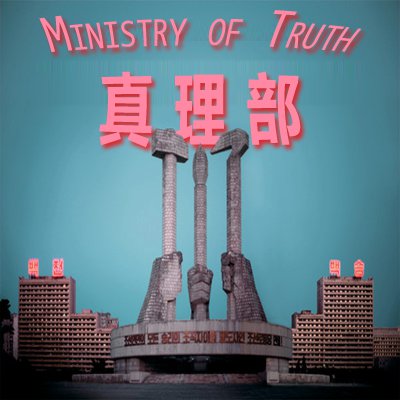The following censorship instructions, issued to the media by government authorities, have been leaked and distributed online. The name of the issuing body has been omitted to protect the source.
News regarding “Taiwan becoming a legal area for same-sex marriage,” raises sensitive political and social issues. Do not hype this story. Regarding terms such as constitution, Judicial Yuan, Legislative Yuan, President, etc., take note to use quotation marks. Make sure not to present Taiwan as a different political entity than the Chinese mainland. (May 24, 2017) [Chinese]
Taiwan’s top court on Wednesday ruled that language in the nation’s Civil Code stipulating that marriage is between a man and a woman violated the constitution. The court gave lawmakers two years to amend the code, setting Taiwan up to become the first Asian country to legalize same-sex unions, a move that is being applauded by LGBT activists. At The Washington Post, Emily Rauhala reports, providing context on LGBT activism and backlash in Taiwan:
Wayne Lin, chairman of the nongovernmental Taiwan Tongzhi Hotline Association, called it a “milestone” for the country.
It is also a milestone for the region, gay rights activists said. “Without a doubt, Taiwan is walking in front of other Asian countries on this,” said Ying Xin, executive director of the Beijing LGBT Center. “This is significant for all of Asia.”
[…] Taiwan has long been seen as a leader on lesbian, gay, bisexual and transgender rights. While Indonesia arrests and beats gay people, Singapore criminalizes gay sex and China cracks down on LGBT organizing, Taiwan has taken steps toward equality.
[…] But a bitter backlash to the groundswell of support for marriage equality has tested Taiwan’s reputation for tolerance. [Source]
Cross-strait tensions have been especially high since landslide presidential and parliamentary victories for the Democratic Progressive Party last January. Taiwanese President Tsai Ing-wen has refused to fully recognize the “1992 Consensus” and related “one China” principle, resulting in Beijing’s suspension of informal diplomatic channels with Taiwan, and its lobbying for the exclusion of Taipei at international policy events such as a recent conflict diamond meeting in Australia, and at the ongoing World Health Assembly in Geneva where Taiwan had previously been granted observer status.
Earlier this month, The News Lens’ Ziqing Low reported on new directives from Xinhua News Agency dictating how self-governing Taiwan can be covered in China. The directives also touch on other politically sensitive issues related to Chinese sovereignty, such as the South China Sea, Hong Kong, and Xinjiang:
According to a Chinese-language copy of the notice, there are 45 directives. Thirteen of those cover terminology restrictions for territory and sovereignty issues, including Taiwan, Hong Kong, Macau and Xinjiang, as well as the disputed Spratly and Senkaku Islands.
[…]
- Hong Kong and Macau are special administrative regions, and Taiwan is a province of China. These regions should not be referred to as “countries” in any text, maps or graphs, especially when many other countries and regions are also being mentioned.
- If the use of names referring to Taiwan’s governmental system and other such institutions cannot be avoided, then quotation marks should be used, such as Taiwan’s “Legislative Yuan,” “Executive Yuan,” “Control Yuan,” “Central Election Commission,” “Directorate General of Budget, Accounting and Statistics, Executive Yuan.” The words “central,” “national,” “Chinese Taipei” should be avoided. If it the use of such words cannot be avoided then quotation marks should be used, such as Taiwan “Central Bank.” Taiwan’s “Premier,” “Legislators,” and other such terms should be put in quotation marks. Taiwan’s “National Tsing Hua University,” “Palace Museum,” and other such names should be put in quotation marks. Under no condition should “President (or Vice-President) of the Republic of China” be used to refer to the leaders of Taiwan, even if it is put in quotation marks.
- The so-called “law” in Taiwan should be referred to as “relevant regulations of Taiwan.” When referring to legal affairs in Taiwan, do not use international legal terms such as “document validation,” “judicial assistance,” or “extradition.” […] [Source]
For more on the ruling by Taiwan’s Judicial Yuan, see coverage from the AP, and Taiwan News. See also a PRIDE roundup of Twitter reactions. Also on Twitter, @wilfredchan is relaying careful Weibo reactions to the news from Taiwan:
Widely shared Weibo (social media) post in China—"Taiwan has become China's first region to legalize same-sex marriage! Also Asia's first!" pic.twitter.com/znsmzRythU
— wilfred chan (@wilfredchan) May 24, 2017
“I want to specifically emphasize, Taiwan is Asia's first region to legalize gay marriage, not country!" https://t.co/GSlQ7y0YO2 pic.twitter.com/tee0KODzR8
— wilfred chan (@wilfredchan) May 24, 2017
“Congratulations Taiwan comrades*! Today, mainland comrades desire more than ever to 'reunify' with Taiwan." (*slang meaning gay person) pic.twitter.com/C3fkm5LSc0
— wilfred chan (@wilfredchan) May 24, 2017
 Since directives are sometimes communicated orally to journalists and editors, who then leak them online, the wording published here may not be exact. Some instructions are issued by local authorities or to specific sectors, and may not apply universally across China. The date given may indicate when the directive was leaked, rather than when it was issued. CDT does its utmost to verify dates and wording, but also takes precautions to protect the source. See CDT’s collection of Directives from the Ministry of Truth since 2011.
Since directives are sometimes communicated orally to journalists and editors, who then leak them online, the wording published here may not be exact. Some instructions are issued by local authorities or to specific sectors, and may not apply universally across China. The date given may indicate when the directive was leaked, rather than when it was issued. CDT does its utmost to verify dates and wording, but also takes precautions to protect the source. See CDT’s collection of Directives from the Ministry of Truth since 2011.







